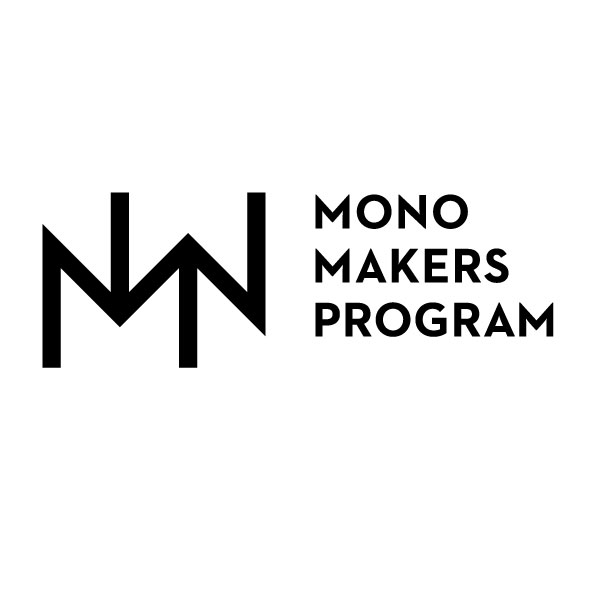Tsubouchi Towels / A Century of Quality Towel Making in Imabari
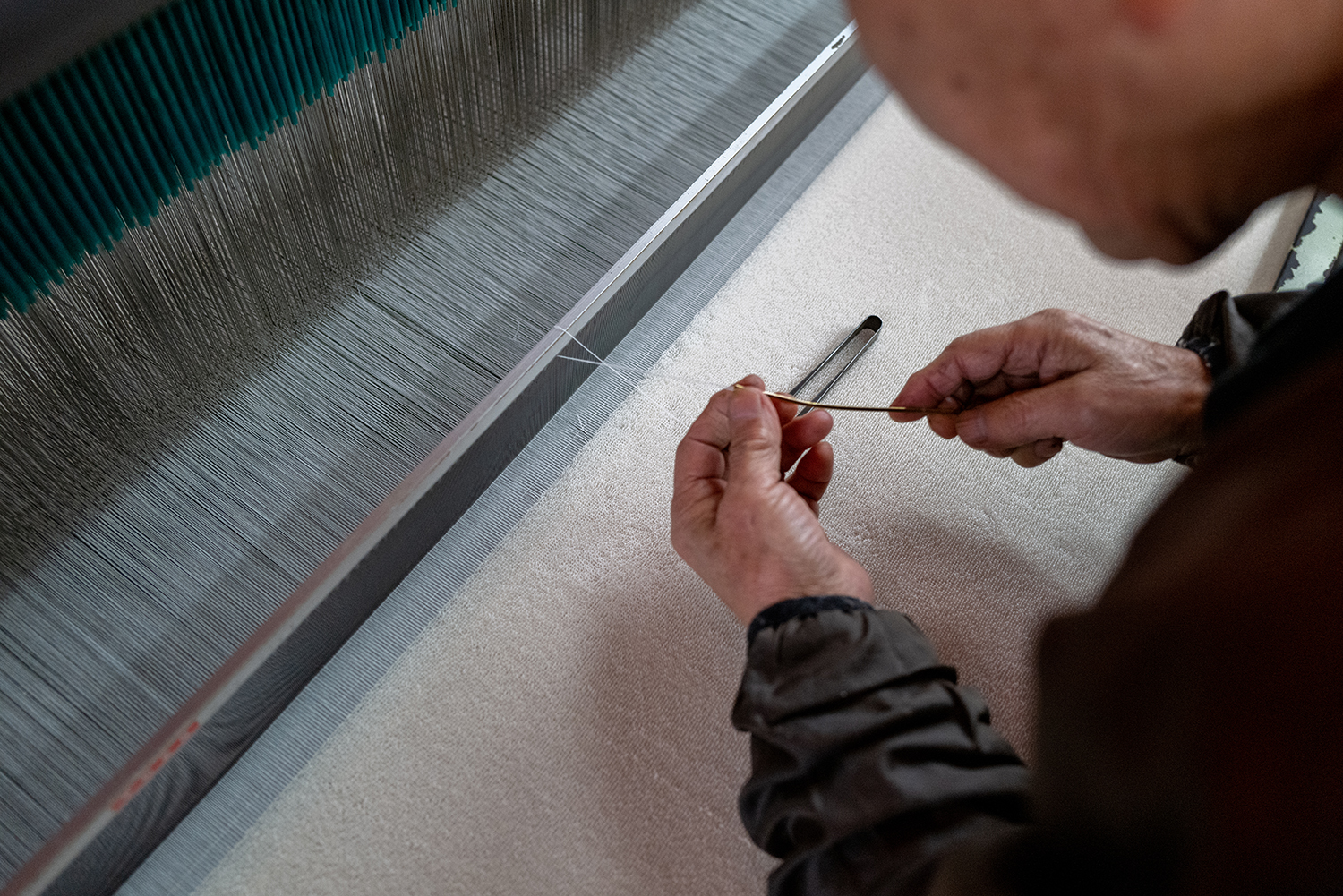
Takashi Tsubouchi’s father never wanted him to take over his towel business. He instead encouraged his son to go into a more stable industry. Takashi began his career as a banker after graduation, but felt unfulfilled.
“I was just moving money from one place to another. I wanted the satisfaction of creating something of quality in the world. So I decided to return to run the family business.”
Tsubouchi Towel was founded in 1921 by Takashi’s grandfather Isamu Tsubouchi making Takashi the third generation to run the company. Each generation has faced its own challenges. From a complete loss after bombing in World War Two to the consolidation of the local towel industry in the 1990s.
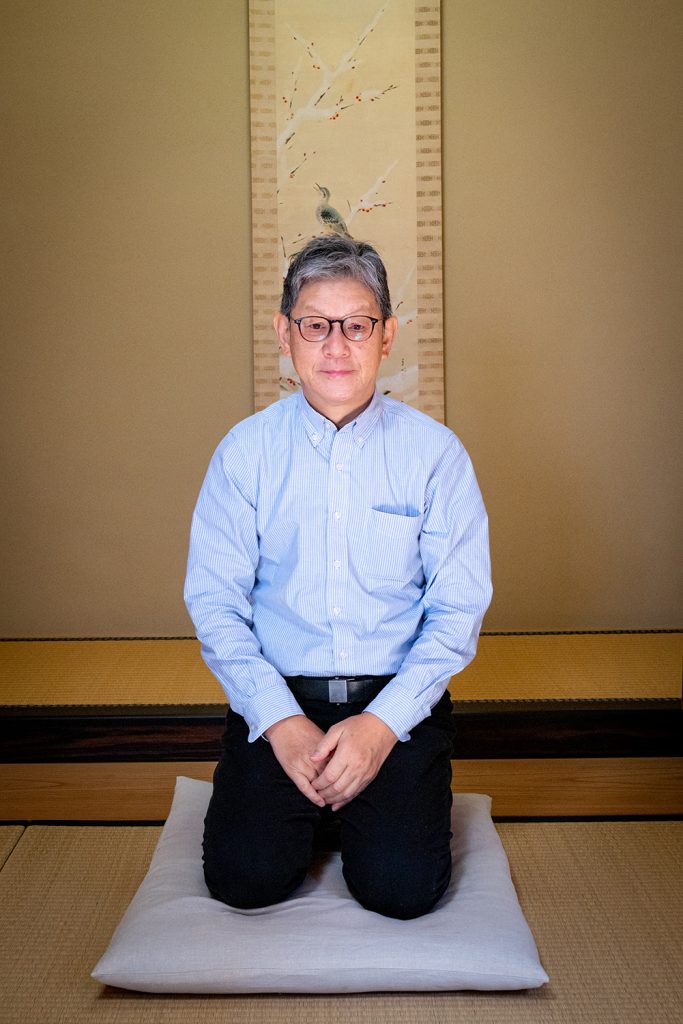
In a fully globalized economy Takashi Tsubouchi has his own challenge—to compete in a rigged economy of cheap labor and mass production. Rather than join the race to the bottom, Tsubouchi Towel decided to focus on high quality and sustainability instead.
“In 2001, we started anew. My business mentor encouraged me to renew the focus of the company on quality. We launched our ‘plantia’ brand specializing in organic cotton products made on classic looms without artificial dyes and chemicals.”
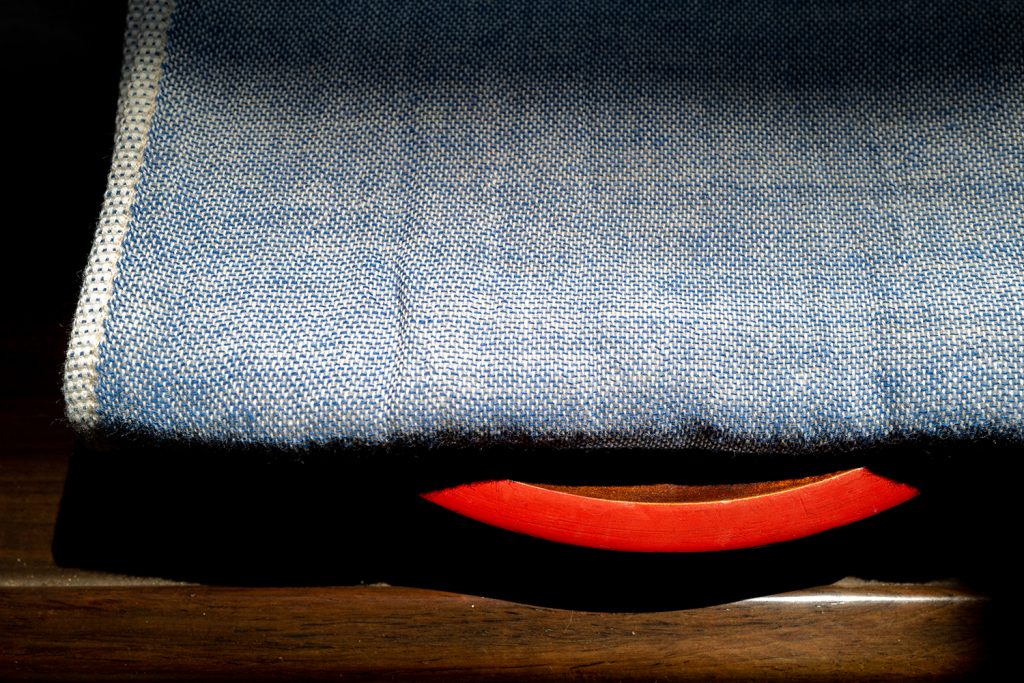
Ehime’s towel producers decided to work together in an ever shrinking industry. In 2006, the Imabari Towel Project was launched in response to the rapid increase of cheap foreign imports. With a renewed focus on quality and branding, Imabari towels are recognized as a representative brand of “Japanese Quality” both in Japan and increasingly abroad.
“Our towels aren’t as thick and heavy as those you might find in hotels in the United States. But the quality of the organic cotton woven on our traditional looms provides a softness and feel that Japanese customers prefer. They also dry more quickly after washing,” says Tsubouchi.
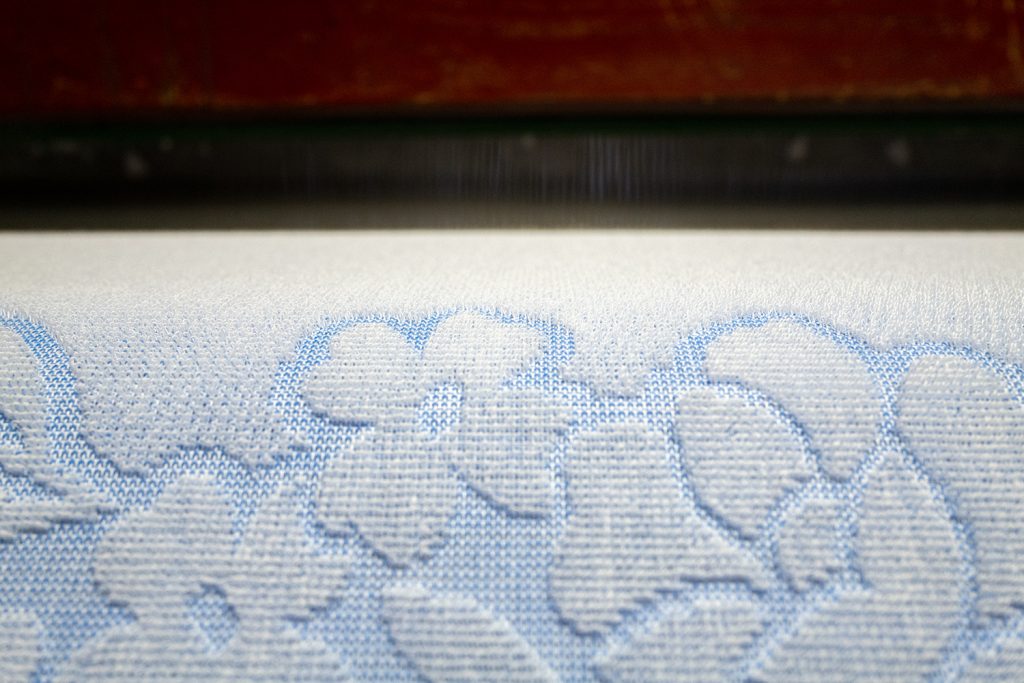
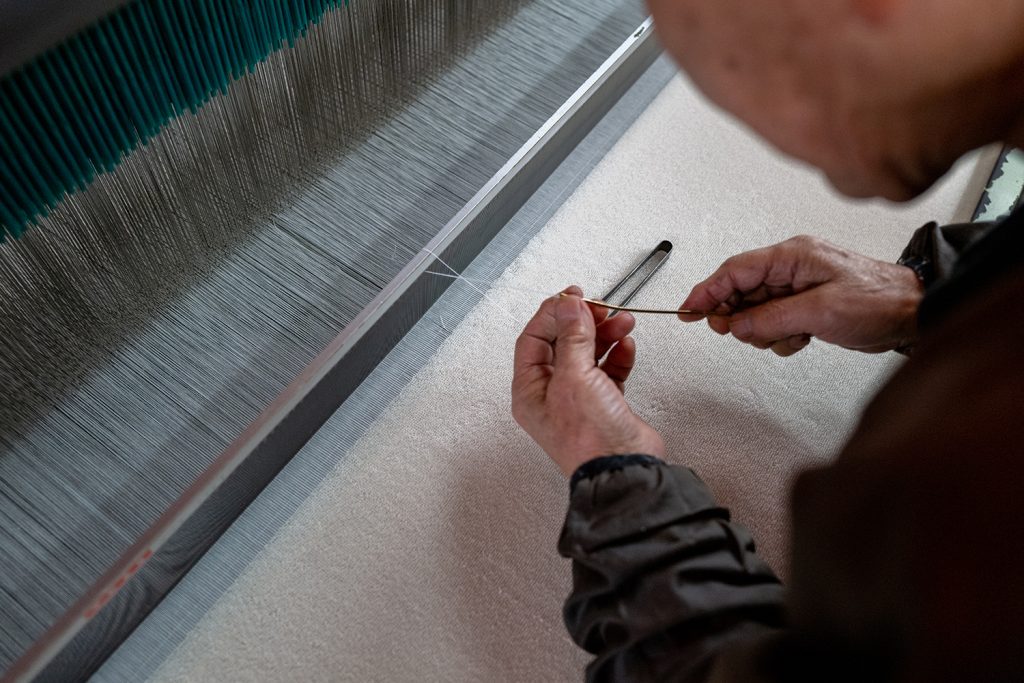
Perhaps due to Japan’s history of silk making and other fine weaving techniques, customers do not equate thickness with quality the way Westen customers might. High quality Imabari-made towels are often given as gifts for weddings or births rather than purchased in bulk for one’s own home.
“In the West, towels are now thought of mostly as basic daily-use items. People expect a very large, thick towel at a cheap price. In Japan, thanks in part to the efforts of Imabari Towel Association’s branding and promotion, the public better understands that the quality of our towels is worth the price. We’re hoping to continue that successful messaging abroad,” explains Tsubouchi.
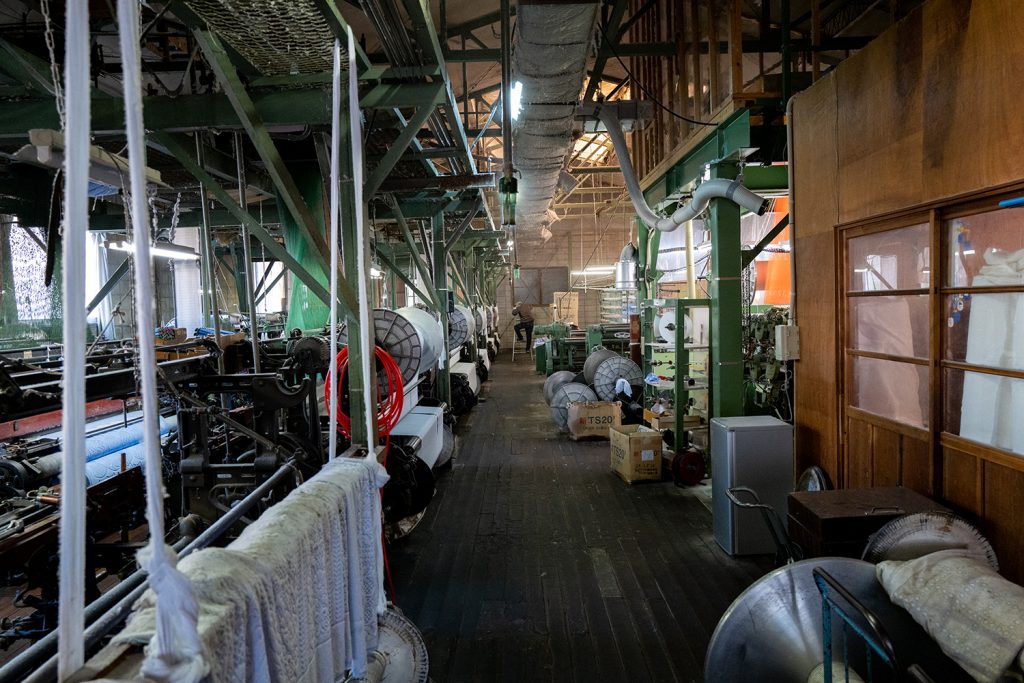
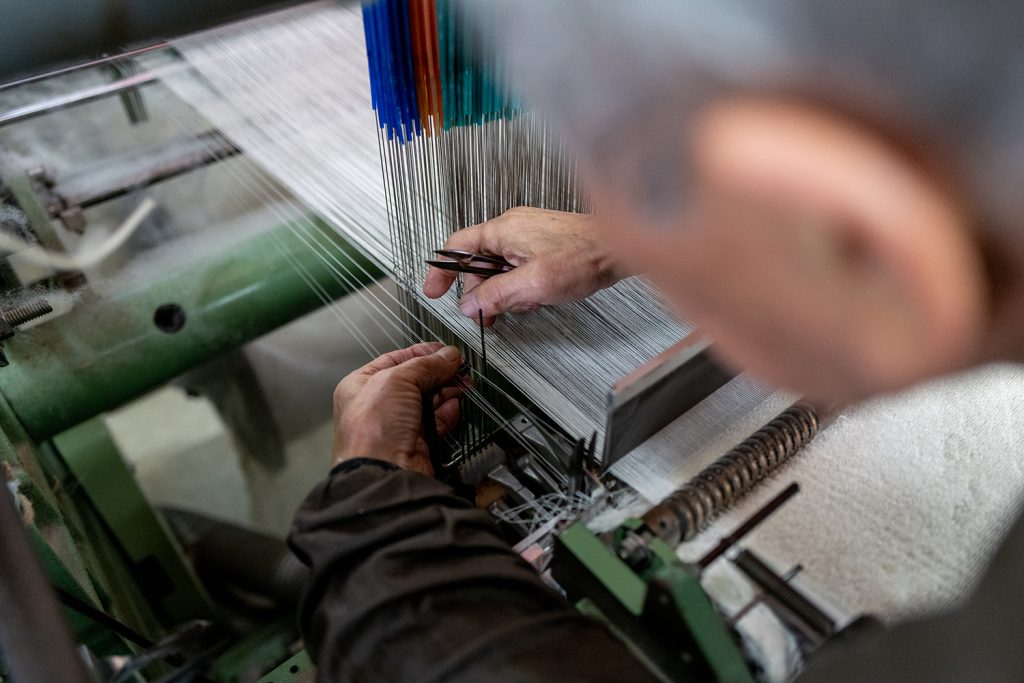
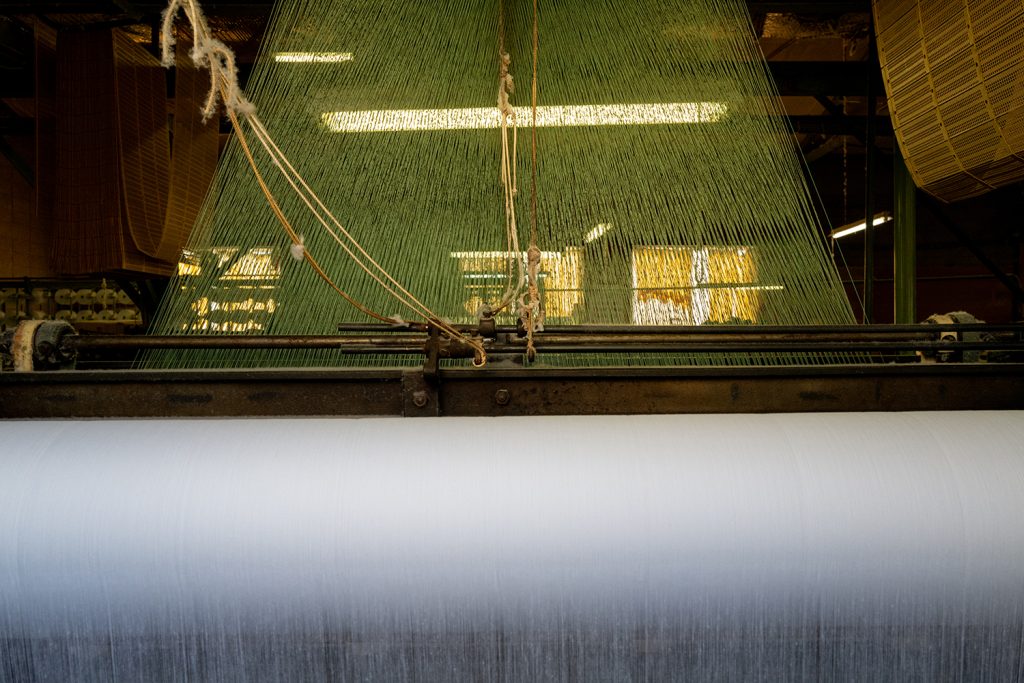
Tsubouchi Towels are produced on shuttle looms in a small, unassuming factory located in Imabari in Ehime prefecture. The building evokes an independent craftsman’s workshop rather than a towel factory. This humble building stands in a sharp contrast from the massive factories producing chemical-laden towels from synthetic blends.
Tsubouchi Towels has been using only organic cotton yarn since 1993. They are a member of the Nippon Organic Cotton Marketing Organization which supplies organic cotton yarn. The materials are completely organic and the production methods of washing and weaving are adjusted for each product.
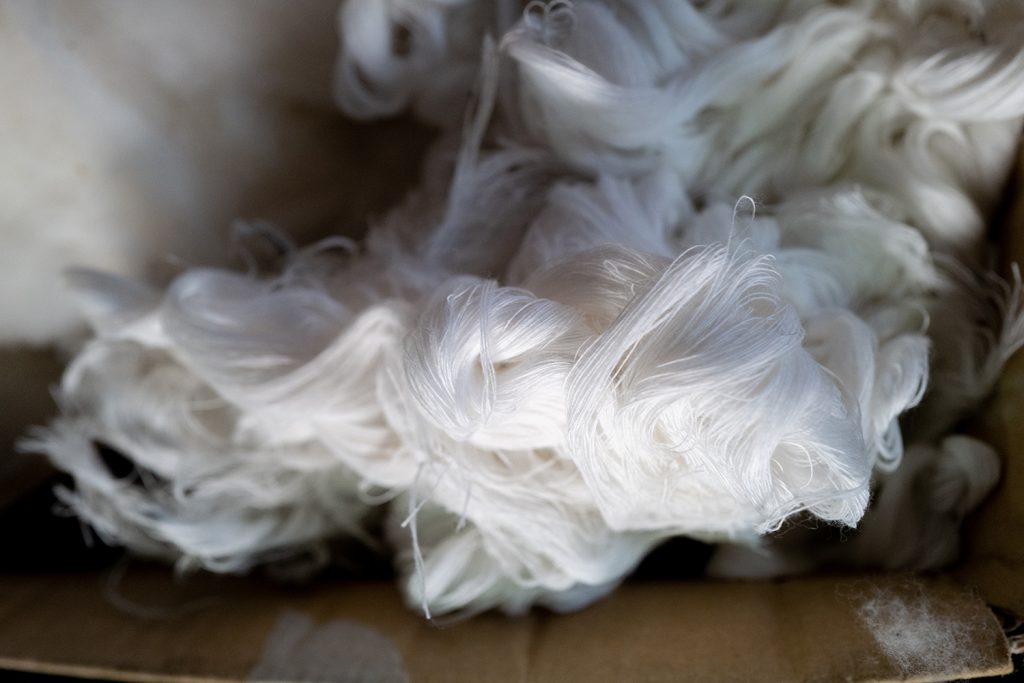
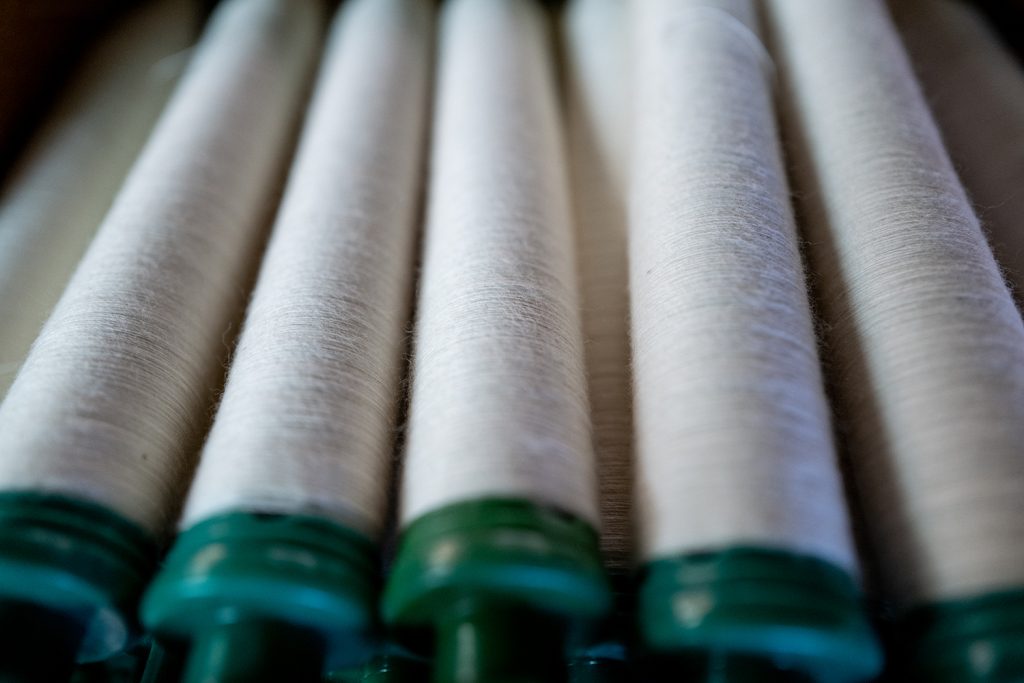
Tsubouchi Towels has been using only organic cotton yarn since 1993. They are a member of the Nippon Organic Cotton Marketing Organization which supplies organic cotton yarn. The materials are completely organic and the production methods of washing and weaving are adjusted for each product.
Starting with a piece of raw cotton, Tsubouchi Towels uses traditional shuttle looms for weaving the towels before giving them a finishing wash. This gentle process improves the texture and feel of the towel. The washing technique used is as natural as possible using just soap and natural enzymes.
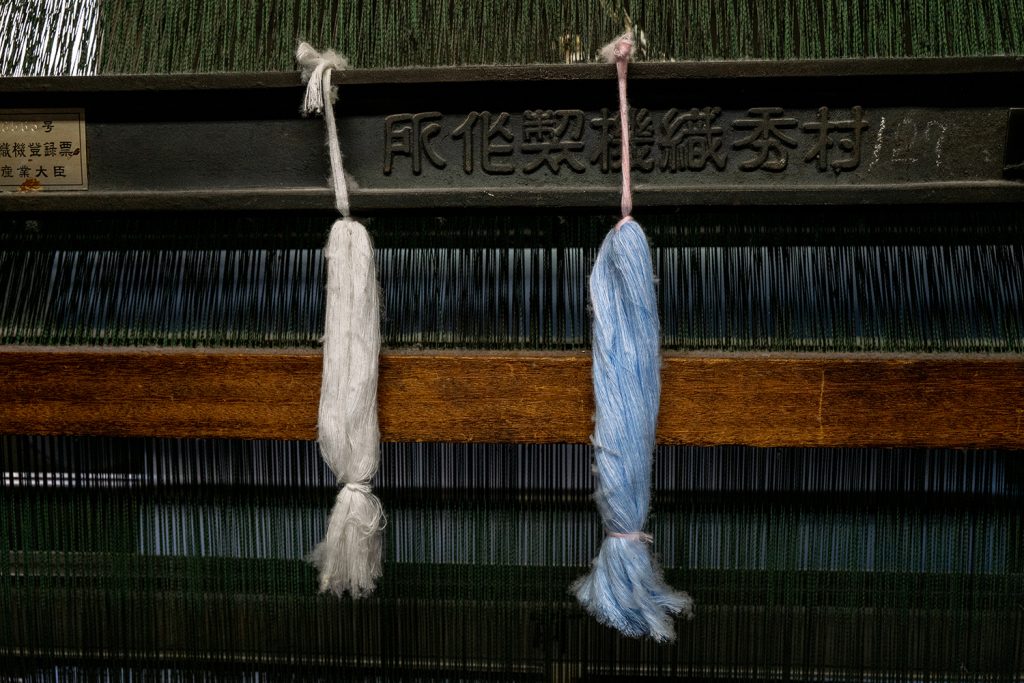
Starting with a piece of raw cotton, Tsubouchi Towels uses traditional shuttle looms for weaving the towels before giving them a finishing wash. This gentle process improves the texture and feel of the towel. The washing technique used is as natural as possible using just soap and natural enzymes.
The shuttle loom process has its drawbacks and advantages. These looms—of which only about 50 remain in Imabari—can weave only about 30 meters of towel fabric per day. However, the old-fashioned structure of the looms offers hidden advantages that show up in the weave.
Compared with high-speed modern looms, shuttle looms weave at a much slower speed. This results in a looser finish to the weave and finer grain to the fabric. The loose weave gives the towels a pleasant texture and makes them more absorbent, as well as quicker to dry.
There seems to be a trade-off between the speed at which the towel fabric is weaved and the texture of the finished product. Increasing the speed of the weaving means increasing the load on the pile which increases the amount of glue used in the pile. The leisurely pace used by Tsubouchi Towels may take more time and effort, but the result in the weave is undeniable.
Tsubouchi says that an overemphasis on speed and convenience has lowered not only the quality of towels, but also our quality of life.
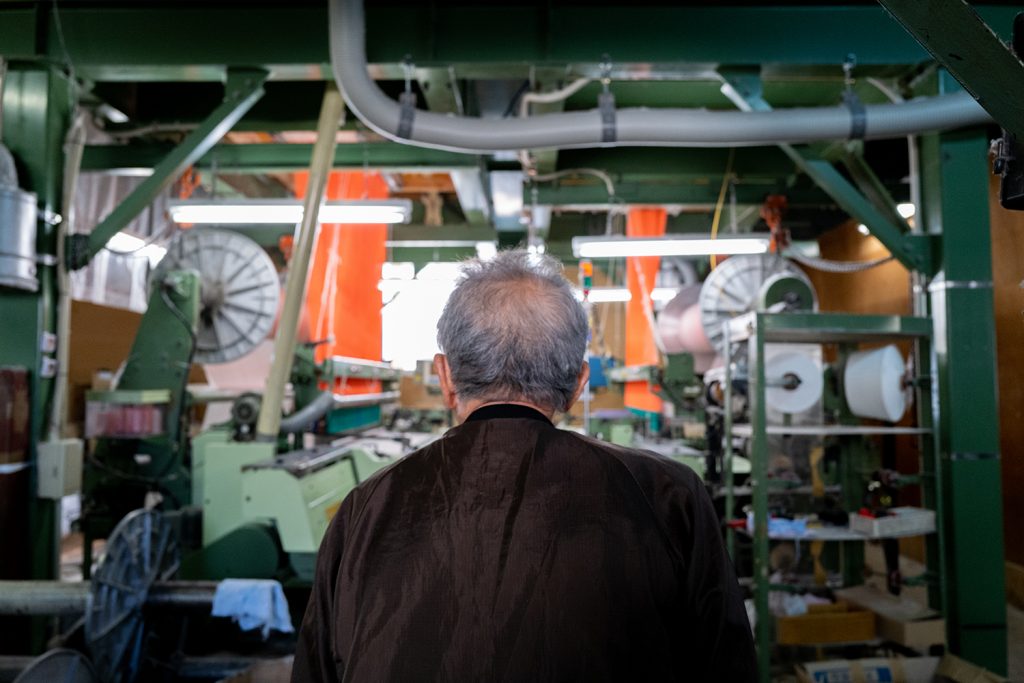
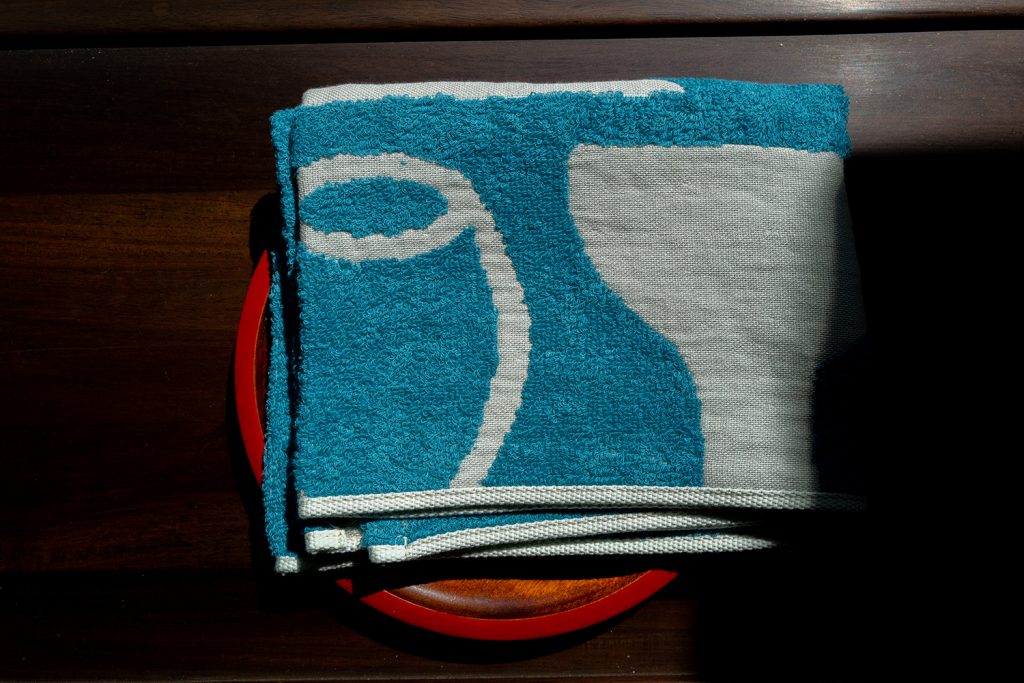
“The modern culture of convenience and disposability is unsustainable. Cheap unsustainable goods may seem like a good deal at the moment, but when we slow down and examine the real cost [of global mass production] we can understand it would be better to slow down and invest in the quality of our daily lives.”
That holistic way of thinking has been the lynchpin of Tsubouchi Towel’s sustainability and quality for more than a century.
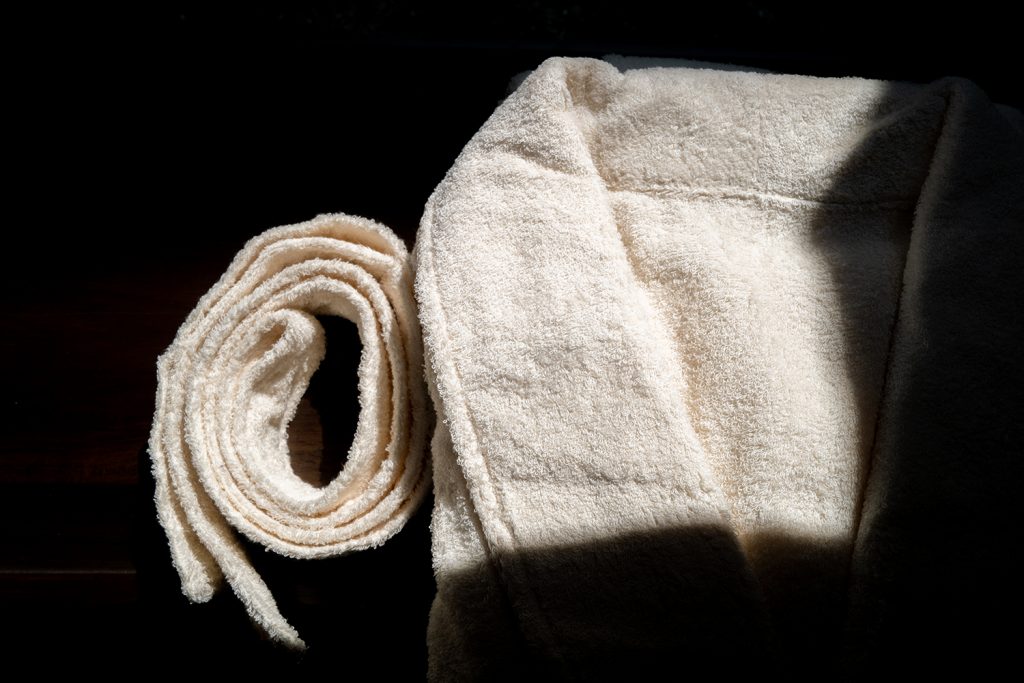
This is a contribution article for MONO MONTHLY – Tsubouchi Towel
Photo and text by Lance Henderstein
